Merger and acquisition activity in the healthcare sector reached a peak in 2021, and while declining in 2022 remained buoyant with high activity. Activity did slow through the first three quarters of 2023, according to Pitchbook’s Q3 2023 Global M&A report, and healthcare organizations and private practices may fairly ask if the post-COVID consolidation spree has come to an end.
To examine this issue, Grant Thornton’s Transaction Advisory team members discuss, in the latest in our Groundbreakers video series, what trends they see in healthcare transactions today and what organizations can do to be best prepared to compete in this economy. In our first video, Transaction Advisory Partner for Healthcare Diligence Lance Beder talks about the general state of the market with Transaction Advisory Partner for Healthcare Diligence Glenn Barenbaum and Healthcare Advisory Partner Adrianne Boylen.
And far from being stagnant, Barenbaum discusses the reasons he thinks 2024 will be a vigorous season for M&A activity in healthcare. Boylen then reviews what founder-owned physician practices can do to optimize their organizations to put themselves in an advantageous position in this active economic environment.
7:16 | Transcript
Beder, Barenbaum and Boylen recount specific experiences with their own clients to illustrate both good and bad examples of diligence work for healthcare organizations. Barenbaum says the key to good diligence planning when considering a transaction is having an agile playbook, where leaders are aligned and don’t get caught in the details, which don’t necessarily impact the “go/no-go” decision. Boylen then follows that with a description of a diligence project she helped organize for a physician practice group. Both Boylen and Barenbaum stress the need to be forward-thinking about their revenue cycle to create a better place of understanding from which to grow.
4:05 | Transcript
Beder continues the discussion about revenue, emphasizing how critical it is for owners to have confidence and insight into their RCM function. The discussion turns to illustrating the challenges in maintaining a reliable and responsive revenue cycle function, where Barenbaum describes how the healthcare reimbursement landscape is in constant states of change. Boylen follows with a discussion about the difficulty of insourcing or outsourcing particular operations in a physician group and how best to make that determination.
Contacts:

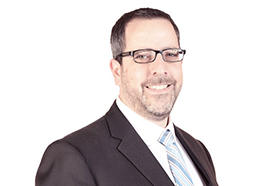
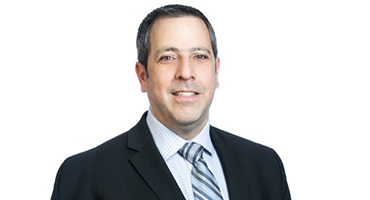
Lance Beder
Principal, Transaction Advisory Services, Diligence Healthcare
Grant Thornton Advisors LLC
Lance is a Principal in our Transaction Services practice and is the health care transaction services leader with over 20 years of experience in restructuring, M&A, audit and management consulting developed over several years within large professional service settings.
Stamford, Connecticut
Industries
- Healthcare
- Private equity
Service Experience
- Audit & Assurance
- Restructuring and turnaround
- Transaction advisory
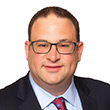
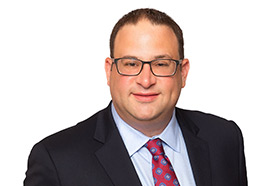
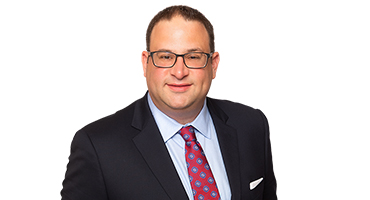
Glenn Barenbaum
Principal, Transaction Advisory Services, Diligence Healthcare
Grant Thornton Advisors LLC
Glenn is the Healthcare and Life Sciences Diligence Co-Leader of Grant Thornton’s Strategy & Transactions practice.
Philadelphia, Pennsylvania
Industries
- Healthcare
- Life sciences
Service Experience
- Advisory



Adrianne Boylen
Principal, CFO Advisory Services, Healthcare Advisory
Grant Thornton Advisors LLC
Adrianne is a seasoned executive in Grant Thornton LLP’s national Health Care Advisory Services Group and has 20 years of experience serving various health care organizations across finance and revenue cycle.
Los Angeles, California
Industries
- Healthcare
Service Experience
- Advisory
- Finance modernization



David Tyler
National Managing Principal, Healthcare Industry
Principal, Technology Modernization
Grant Thornton Advisors LLC
David Tyler is the National Managing Principal of Grant Thornton's Healthcare Practice. David oversees advisory, tax and audit services for the healthcare industry, collaborating with over 700 healthcare teammates to serve our 1,000 clients.
Atlanta, Georgia
Industries
- Healthcare
Service Experience
- Advisory
Content disclaimer
This content provides information and comments on current issues and developments from Grant Thornton Advisors LLC and Grant Thornton LLP. It is not a comprehensive analysis of the subject matter covered. It is not, and should not be construed as, accounting, legal, tax, or professional advice provided by Grant Thornton Advisors LLC and Grant Thornton LLP. All relevant facts and circumstances, including the pertinent authoritative literature, need to be considered to arrive at conclusions that comply with matters addressed in this content.
For additional information on topics covered in this content, contact a Grant Thornton professional.
Grant Thornton LLP and Grant Thornton Advisors LLC (and their respective subsidiary entities) practice as an alternative practice structure in accordance with the AICPA Code of Professional Conduct and applicable law, regulations and professional standards. Grant Thornton LLP is a licensed independent CPA firm that provides attest services to its clients, and Grant Thornton Advisors LLC and its subsidiary entities provide tax and business consulting services to their clients. Grant Thornton Advisors LLC and its subsidiary entities are not licensed CPA firms.
More healthcare insights

No Results Found. Please search again using different keywords and/or filters.
Share with your network
Share